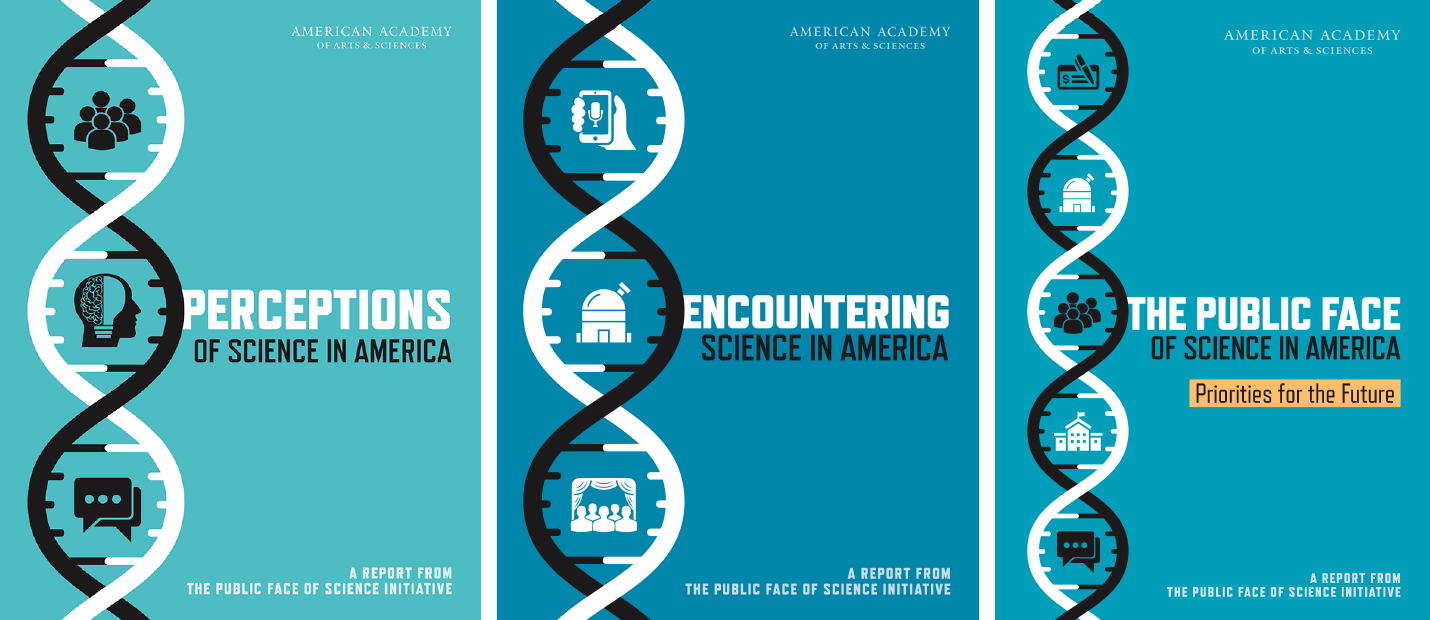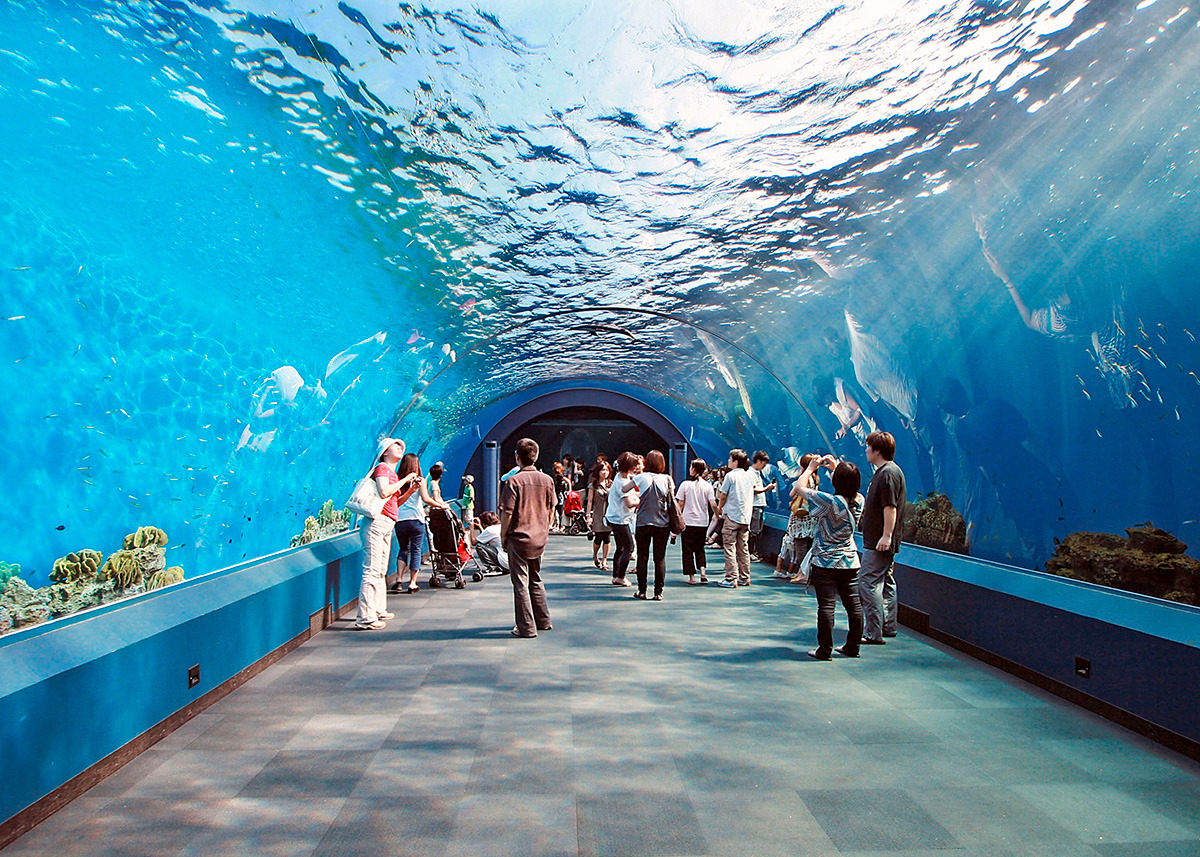By Kate Carter, John E. Bryson Director of Science, Engineering, and Technology, and Jen Smith, Program Associate for Science, Engineering, and Technology
Science in America is facing a moment of deep uncertainty. A changing political landscape, reduced federal support, and growing public skepticism are creating serious challenges for the science research community. Alongside long-standing problems such as rampant misinformation and growing tensions with research-conducting institutions, distrust in science has made the role of science in a democratic society even more uncertain. To address these challenges, the Academy is examining what it will take to strengthen public trust in science and support science’s essential role in civic life.
In early 2025, the Academy held five virtual roundtable salons that focused on the following topics: misinformation, climate change, civic engagement, scientific enterprise, and science and democracy, moderated by Laurie L. Patton (American Academy), Cristián Samper (Bezos Earth Fund), Sean Decatur (American Museum of Natural History), Cristine Russell (Harvard Kennedy School), and Mark Trahant (Indian Country Today), respectively. The interdisciplinary discussions included participants from journalism, social science, museum leadership, and philosophy.
Each roundtable engaged with how the public encounters science, how narratives are shaped by media and political identity, and what strategies might help rebuild trust. The conversations were honest and introspective, with participants discussing the structural and cultural dynamics that shape the perception and legitimacy of science in American public life.
The roundtables build on the Academy’s long-standing commitment to address pressing issues about science in our nation. The Academy has been contributing to debates on what drives public trust in science for decades, with recent work that includes the Public Face of Science project and an exploratory meeting on Bridging the Gap Between Science and the Public.
Although the rapid changes in government and higher education were top of mind, roundtable participants emphasized the importance of viewing today’s challenges in science through a historical lens, shedding light on persistent, long-standing issues. In the past, the nation saw science as serving the public good through medical advances that improved public health and combated diseases such as cancer. Participants also noted that discoveries and technological advances, such as the creation of everyday items like cell phones, are the result of scientific research. Unfortunately, this connection between science and public benefit is less visible today. Science is increasingly perceived as detached, technical, or driven by institutional agendas. This perception is shaped not only by communication gaps but by changes in education, politics, and the media landscape.
Several key themes emerged from these discussions, which are outlined below. Together, they help clarify where trust has frayed, what values remain widely shared, and how the Academy’s work could strengthen the relationship between science and society.
THEMES FROM THE ROUNDTABLES
Communication
Science communication is important, but saying so is not enough. Scientists are told to share their work with the public without regard for how the public will interpret and respond to that information. As one neuroscientist participant noted, people tend to trust messages that feel familiar or align with their existing beliefs. Effective communication, therefore, requires building trust by connecting through shared values and framing scientific information in ways that relate to everyday concerns. Dealing with misinformation is far from straightforward. While misinformation must be addressed, participants cautioned against using accusatory or politically charged language, or politicizing knowledge gaps.
Participants emphasized the importance of scientists taking a more active role in shaping the narrative, one that underscores science’s essential contribution to both democratic values and societal progress. This includes exploring direct, two-way engagement with communities and reaching a shared understanding of key terms like civic engagement, misinformation, and disinformation.
Some noted that scientists should help to shift the public perception of science from being controlled by elite-serving institutions to becoming an integral part of the broader civic ecosystem, emphasizing that scientists are also citizens. However, others warned that unless the rewards structure for science is changed, these reforms are unlikely to happen.
While all roundtable participants supported greater transparency, some cautioned against full transparency, arguing instead for strategic communication that fosters trust while acknowledging uncertainty. This is especially important when scientists need to revise or update previous messages—a normal and necessary part of the scientific process that can often be misinterpreted by the public as inconsistency. Communications should help people see these changes in scientific consensus as progress, not failure.
Inclusion
Roundtable participants stressed that science practitioners and leaders must recognize the history of exclusion in science across different communities, and how this continues to affect public trust today. Participants agreed that inclusion is not just a core institutional value, but also a key strategy for building trust. Organizations like the Academy need to demonstrate that their work serves all communities and show they are willing to align their efforts with local needs and priorities. Partnering with local institutions, which are often well-positioned to build trust, can be particularly effective in fostering this trust. Science should be rooted in place as well as in principle.
Institutional Responsibility
Rebuilding trust in science requires sustained investment in science education, infrastructure, and the next generation of scientists. Without this ongoing support, the United States risks falling behind countries that are making strategic long-term investments in research. Organizations like the Academy can help strengthen the foundation of American science by building coalitions that span sectors and disciplines. Trust in science did not erode overnight, and it will not be restored overnight. But with ongoing investments that prioritize consistent diverse engagement and a shared commitment to science as a public good, it can be rebuilt and become even stronger.
The participants agreed that immediate efforts should prioritize supporting those who stand to lose the most in these unprecedented times. The stakes are high as America’s leadership in innovation and other frontiers could be lost if top talent starts to seek educational opportunities and careers elsewhere.
In conclusion, debate and discourse are essential to a healthy democracy, but doing so in a fact-based way is becoming increasingly difficult. In all of the roundtable discussions, participants noted that science often becomes controversial when it is perceived to challenge a person’s autonomy or identity. They also observed that the public (regardless of political affiliation) do not perceive themselves as misinformed. Instead, they tend to doubt the impartiality of science itself, which the pandemic and politicized media have amplified. This makes science especially vulnerable to distortion. The participants described the current media and political landscape where the spread of misinformation is rewarded and accountability is limited.
The Academy, with its diverse membership and convening power, is well positioned to support this work. By equipping its members with tools for public engagement and amplifying their voices across disciplines and communities, the Academy can help restore the connection between science and society.
The Academy’s Public Face of Science project explored the complex and evolving relationship between science and society in America. Over several years, the project drew on the expertise of leaders from diverse fields—including communication, law, the humanities, the arts, journalism, public affairs, and the physical, social, and life sciences—to better understand and strengthen the connection between scientists and the public.
The project produced three publications to respond to three core inquiries:
- What do Americans think of science?
- Where do Americans experience science?
- How can science be better connected to the public?

The research and recommendations of the project are rooted in the recognition that improving science communication and engagement will strengthen the relationship between scientists and society.
More information about the Public Face of Science project is on the Academy’s website.
The Academy is grateful for support from the Rita Allen Foundation and the Doris Duke Foundation, which made this work possible.
